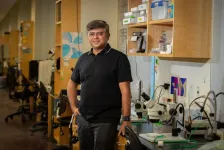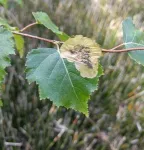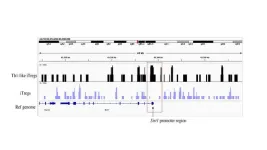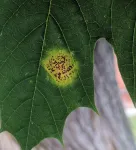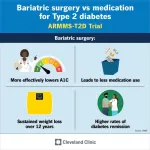(Press-News.org) RIVERSIDE, Calif. -- Imagine if we could inhale scents that delay the onset of cancer, inflammation, or neurodegenerative disease. Researchers at the University of California, Riverside, are poised to bring this futuristic technology closer to reality.
In lab experiments, a team led by Anandasankar Ray, a professor of molecular, cell and systems biology, exposed the fruit fly (Drosophila melanogaster) to diacetyl, a microbial volatile compound released by yeast, and found changes in gene expression in the fly’s antennae in just a few days. In separate experiments, the team found similar gene expression changes in mice and human cells.
“That exposure to an odorant can directly alter expression of genes, even in tissues that have no odorant receptors, came as a complete surprise,” Ray said. “These molecules are able to get to the cell nucleus through the cell membrane.”
Diacetyl is widely used in food and beverage flavorings. It occurs naturally in a variety of dairy products and is a natural byproduct of fermentation and brewing. While diacetyl is found in beer, wine, Greek yogurt, and many ripening fruits, it is considered unsafe to inhale at high concentrations.
“Our initial discovery was made using diacetyl, as a proof of concept, and this compound may not be the perfect candidate for therapy,” Ray said. “We are already working on identifying other volatiles that lead to changes in gene expression. Our important finding is that some volatile compounds emitted from microbes and food can alter epigenetic states in neurons and other eukaryotic cells. Ours is the first report of common volatiles behaving in this way. It opens an entire field of inquiry. The possibilities are limitless.”
The research, published in eLife, shows that alterations in gene expression and chromatin — the mixture of DNA and proteins that form chromosomes — are possible in an organism even without the organism actively consuming the volatile compound source. The source could even be at some distance from the organism.
“We have shown for the first time that some of these odor molecules to which we are exposed and are being absorbed into the cells of our skin, nose, lungs, even probably to the brain through the bloodstream are fundamentally altering gene expression,” Ray said. “Is this something to be concerned about? How is it affecting our predisposition to certain diseases? How exactly is it affecting the genes we express? These remain unanswered questions.”
Ray’s team found that diacetyl can act as an inhibitor of histone deacetylase, or HDAC, enzymes and discovered several related volatiles with similar potential. HDAC inhibitors are used as anti-cancer drugs and may find use also in treating inflammatory diseases as well as neurodegeneration. When HDACs, which are conserved in plants and animals, are inhibited, DNA gets less compactly wound in cells, leading to more gene expression.
“This opens the potential for odorant-based HDAC inhibitors to delay neurodegeneration or memory deficits in diseases,” Ray said.
In the fruit fly, Ray’s team found exposure to diacetyl volatiles substantially slowed degeneration of photoreceptor cells linked to Huntington’s disease. In transgenic mice, the team found exposure to diacetyl showed gene expression changes in lungs and brains; gene levels that are upregulated in cancers like neuroblastoma showed a significant reduction in mice exposed to diacetyl.
In human cell lines, the team found diacetyl changed acetylation levels, with higher levels of acetylation resulting in higher levels of gene expression. In further testing on human cancer cell lines, the team found exposure to diacetyl prevented proliferation of neuroblastoma.
Apart from human diseases the research has enormous implications for agriculture. Because HDACs are highly conserved, they also affect plants.
“Plants appear to have a very strong response to some of these volatiles,” Ray said. “In plants, any process that requires changes in gene expression can now be affected via exposure to this special class of odorants.”
Ray explained that the volatiles are like tiny drugs that can change levels of gene expression and exploit the plant’s genetic potential for improving growth of roots, leaves, flowers and even responses to abiotic stress like freezing and drought.
“Volatile chemicals can deliver a therapeutic dose to plants and animals, with no need for pills or injections,” he said. “They can simply be breathed in, almost giving a new meaning to scent-based therapy.”
With the help of the Office of Technology Partnerships at UCR, Ray has filed patents for volatiles that can slow down neurodegeneration and cancer and alter plant growth and responses to stress.
Last year, Ray launched a startup, Remote Epigenetics, which has the exclusive license to use these volatiles that alter gene expression. The company is headquartered in the Multipurpose Research Building on the UCR campus. The new agritech startup will focus on developing new tools for agriculture using low-cost volatiles to address several important problems.
Ray was joined in the research by Sachiko Haga-Yamanaka, Rogelio Nuñez-Flores, Christi Ann Scott, Sarah Perry, Stephanie Turner Chen, Crystal Pontrello, and Meera Goh Nair of UCR.
Ray is also the founder of another startup, Sensorygen, which works on the computational neurobiology of olfaction and taste.
The research was partially funded by the National Institutes of Health and the Agricultural Experimentation Station at UCR.
The title of the paper is “Plasticity of gene expression in the nervous system by exposure to environmental odorants that inhibit HDACs.”
The University of California, Riverside is a doctoral research university, a living laboratory for groundbreaking exploration of issues critical to Inland Southern California, the state and communities around the world. Reflecting California's diverse culture, UCR's enrollment is more than 26,000 students. The campus opened a medical school in 2013 and has reached the heart of the Coachella Valley by way of the UCR Palm Desert Center. The campus has an annual impact of more than $2.7 billion on the U.S. economy. To learn more, visit www.ucr.edu.
END
Sniffing our way to better health
New scent-based therapy can delay disease; has implications also for agricultural production
2024-02-27
ELSE PRESS RELEASES FROM THIS DATE:
Texas Tech and TTUHSC professors honored as NAI senior members
2024-02-27
The National Academy of Inventors (NAI) has announced four faculty members from the Texas Tech University System as part of the 2024 class of Senior Members.
Noureddine Abidi and Seshadri Ramkumar, both professors at Texas Tech University; Annelise Nguyen, associate dean for research at the School of Veterinary Medicine in Amarillo; and Hongjun (Henry) Liang, a professor from Texas Tech University Health Sciences Center (TTUHSC), join 120 other emerging academic inventors in this year’s class.
“These individuals are great representatives of the innovative spirit here at Texas Tech and are highly deserving of this recognition,” ...
UMass Amherst researchers identify enzyme key to training cells to fight autoimmune disorders
2024-02-27
Februay 27, 2024
UMass Amherst Researchers ID Enzyme Key to Training Cells to Fight Autoimmune Disorders
Discovery of new signaling pathway in immune cells may lay the foundation for drug-free, side-effect-free treatments for patients with aplastic anemia and other autoimmune disorders
AMHERST, Mass. – Researchers at the University of Massachusetts Amherst recently released a first-of-its-kind study that focuses on the rare autoimmune disorder aplastic anemia to understand how a subset of cells might be trained to correct the overzealous immune response that can lead to fatal autoimmune disorders. The research, published in Frontiers in Immunology, ...
Addressing societal concerns of genetic determinism of human behavior by linking environmental influences and genetic research
2024-02-27
It has long been known that there is a complex interplay between genetic factors and environmental influences in shaping behavior. Recently it has been found that genes governing behavior in the brain operate within flexible and contextually responsive regulatory networks. However, conventional genome-wide association studies (GWAS) often overlook this complexity, particularly in humans where controlling environmental variables poses challenges.
In a new perspective article publishing February 27th in the open-access journal PLOS Biology ...
Biodiversity appears to strongly suppress pathogens and pests in many plant and animal systems, but this “dilution effect” can vary strikingly in magnitude
2024-02-27
Biodiversity appears to strongly suppress pathogens and pests in many plant and animal systems, but this “dilution effect” can vary strikingly in magnitude
This study uses forest inventory data from over 25,000 plots to show that the prevalence of tree pests is jointly controlled by the diversity and phylogenetic composition of forests
#####
In your coverage, please use this URL to provide access to the freely available paper in PLOS Biology: http://journals.plos.org/plosbiology/article?id=10.1371/journal.pbio.3002473
Press-only preview: PENDING
Contact: Andrew Gougherty, andrew.gougherty@usda.gov
Image ...
Study shows bariatric surgery provides superior long-term treatment for type 2 diabetes in patients with obesity
2024-02-27
Tuesday, February 27, 2024, CLEVELAND: Research by Cleveland Clinic and three other U.S. medical centers has found that bariatric surgery provides better long-term control of blood glucose levels in patients with obesity and type 2 diabetes, compared with medical therapy.
Study participants who had bariatric surgery also experienced higher rates of complete diabetes remission up to 12 years after their surgical procedure.
The research was published in JAMA.
The Alliance of Randomized trials of Medicine vs Metabolic Surgery in Type 2 Diabetes (ARMMS-T2D) consortium analyzed long-term results of four randomized trials that were ...
Diet linked to preeclampsia among low-income Hispanic women during pregnancy
2024-02-27
A research study led by the Keck School of Medicine of USC found that certain combinations of foods consumed during pregnancy may be linked to a higher likelihood of developing preeclampsia, a potentially life-threatening blood pressure condition that can have serious consequences for both mother and baby.
The study, which focuses on low-income Hispanic women in Los Angeles, suggests that different combinations of foods in a woman's diet during pregnancy have the potential to increase or reduce the likelihood of preeclampsia development, and that interventions in diet during pregnancy may help reduce the risk of preeclampsia.
It is known that Hispanic women develop ...
Exposure to secondhand smoke during chemotherapy makes treatment less effective, study shows
2024-02-27
People who are diagnosed with head and neck cancer often receive a standard type of chemotherapy as part of their treatment. If they are exposed to secondhand smoke during chemotherapy — even if they have never smoked themselves — the treatment may be far less effective at killing cancer cells. That finding, considered the first of its kind, was revealed in a study recently published by researchers at the University of Oklahoma Health Sciences.
Tobacco use is a well-established risk factor for cancer and a signal of poor outcomes, especially ...
Polar climates changing in fundamental ways
2024-02-27
[Boston, MA—February 27, 2024] Research recently published early online in journals of the American Meteorological Society demonstrates changes at the Earth’s poles, including altered ocean-sea ice dynamics, dampened temperature extremes, and differing responses to solar radiation at the north and south poles, and suggests that long-term warming trends may have played more of a role in 2023’s record-low Southern Ocean ice than previously supposed.
Three papers in the Journal of Climate (JCli) find that the Arctic and Antarctic appear to be adjusting to a warming climate with fundamental changes in regional climate dynamics.
The Antarctic ocean-sea ice system may be fundamentally ...
Remote online genetic education programs can spur testing for inherited susceptibility to cancer, study suggests
2024-02-27
Even as it's become clear that an inherited susceptibility to some cancers is more common than once thought, genetic testing of family members of cancer patients hasn't increased as much as experts had hoped. A new study led by researchers at Dana-Farber Cancer Institute and Brigham and Women’s Hospital demonstrates that a remote online genetic education program can be a powerful motivator for people with a family history of cancer to undertake genetic testing.
The GENetic Education, Risk Assessment, and TEsting (GENERATE) study included 601 people from across 45 states who had a close relative with the most common form of pancreatic cancer. Participants ...
Study shows daylight saving time has minimal effect on heart health
2024-02-27
ROCHESTER, Minn. — A recent Mayo Clinic study examining the effects of daylight saving time (DST) on heart health suggests that the impact is likely minimal.
In the nationwide study, researchers applied an advanced statistical model to look for any connections between DST and serious cardiovascular problems, including heart attacks and strokes. The study looked at 36,116,951 adults aged 18 and up across most U.S. states. (Arizona and Hawaii were excluded since these states do not observe DST.)
Researchers focused on the week directly after the spring and fall DST transition, ...
LAST 30 PRESS RELEASES:
Yale study challenges notion that aging means decline, finds many older adults improve over time
Korean researchers enable early detection of brain disorders with a single drop of saliva!
Swipe right, but safer
Duke-NUS scientists identify more effective way to detect poultry viruses in live markets
Low-intensity treadmill exercise preconditioning mitigates post-stroke injury in mouse models
How moss helped solve a grave-robbing mystery
How much sleep do teens get? Six-seven hours.
Patients regain weight rapidly after stopping weight loss drugs – but still keep off a quarter of weight lost
GLP-1 diabetes drugs linked to reduced risk of addiction and substance-related death
Councils face industry legal threats for campaigns warning against wood burning stoves
GLP-1 medications get at the heart of addiction: study
Global trauma study highlights shared learning as interest in whole blood resurges
Almost a third of Gen Z men agree a wife should obey her husband
Trapping light on thermal photodetectors shatters speed records
New review highlights the future of tubular solid oxide fuel cells for clean energy systems
Pig farm ammonia pollution may indirectly accelerate climate warming, new study finds
Modified biochar helps compost retain nitrogen and build richer soil organic matter
First gene regulation clinical trials for epilepsy show promising results
Life-changing drug identified for children with rare epilepsy
Husker researchers collaborate to explore fear of spiders
Mayo Clinic researchers discover hidden brain map that may improve epilepsy care
NYCST announces Round 2 Awards for space technology projects
How the Dobbs decision and abortion restrictions changed where medical students apply to residency programs
Microwave frying can help lower oil content for healthier French fries
In MS, wearable sensors may help identify people at risk of worsening disability
Study: Football associated with nearly one in five brain injuries in youth sports
Machine-learning immune-system analysis study may hold clues to personalized medicine
A promising potential therapeutic strategy for Rett syndrome
How time changes impact public sentiment in the U.S.
Analysis of charred food in pot reveals that prehistoric Europeans had surprisingly complex cuisines
[Press-News.org] Sniffing our way to better healthNew scent-based therapy can delay disease; has implications also for agricultural production
